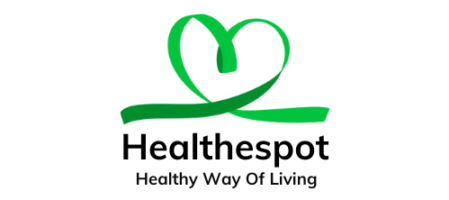The nursing field is currently navigating through a storm. With a noticeable shortage of professionals in many regions, including Virginia, the pressure on existing nurses has significantly escalated. This increase in workload contributes to a heightened risk of burnout, a state of physical and emotional exhaustion that can affect one’s health and quality of life. Recognizing and addressing the signs of burnout early is extremely important for maintaining both personal well-being and the standard of patient care. This article introduces practical strategies aimed at helping nurses manage stress and prevent burnout, fostering a healthier work environment and a more sustainable career in nursing.
Prioritize Self-Care
Self-care is an essential strategy for avoiding burnout. Nurses often prioritize the well-being of their patients above their own, but neglecting personal health can lead to burnout. Regular exercise, balanced nutrition, and sufficient rest are foundational practices that help sustain physical and mental health. Additionally, engaging in hobbies and activities outside of work can provide a much-needed respite from the demands of the nursing profession.
Develop Healthy Work-Life Boundaries
Establishing firm boundaries between professional responsibilities and personal life is vital. This separation helps prevent work-related stress from infiltrating every aspect of a nurse’s life, allowing for genuine downtime and recovery. Clear boundaries also encourage a more focused and present mindset during work hours, enhancing job performance and satisfaction.
Exploring Career Opportunities
Diversifying one’s career experiences can rejuvenate interest and motivation in the nursing field. For those feeling stagnant or overwhelmed, exploring Virginia RN careers might uncover new environments and specialties that offer a fresh perspective. This change of scenery can significantly reduce feelings of burnout by introducing new challenges and learning opportunities that reinvigorate a nurse’s passion for their profession.
Implementing Efficient Time Management
Effective time management is key to managing a heavy workload without becoming overwhelmed. By prioritizing tasks, nurses can focus on urgent and important activities first, reducing procrastination and the stress of last-minute rushes. This approach not only enhances efficiency but also allows for more predictable and manageable workdays, contributing to a healthier work-life balance.
Seeking Professional Support
When nurses feel overwhelmed, seeking support from peers, mentors, or mental health professionals can offer valuable relief and coping strategies. Discussing experiences and challenges with colleagues leads to a sense of camaraderie and reassurance, emphasizing that nurses are not alone in their difficulties. Professional counseling services provide tailored techniques to manage the emotional impact of their demanding roles, equipping nurses with effective tools to take on stressors.
In addition, having a support system to lean on can significantly alleviate stress for nurses. Whether it’s confiding in a friend who empathizes with their experiences or consulting with a trained counselor, reaching out for assistance can provide a sense of security and understanding. This network acts as a safety net, offering comfort and guidance during challenging times, ultimately enhancing nurses’ ability to manage their responsibilities with resilience and confidence.
Having Flexibility in Scheduling
Flexibility in work schedules can play a critical role in preventing nurse burnout. When nurses have some control over their hours, they are better able to balance work demands with personal life, leading to reduced stress levels. Healthcare facilities that offer various shifts, part-time positions, or job-sharing arrangements acknowledge the importance of work-life balance, contributing to their staff’s overall well-being and job satisfaction.
Pursuing Further Education and Training
Continuous learning and professional development can reinvigorate a nurse’s career and help combat burnout. Advancing one’s education or specializing in a particular field not only opens new career paths but also renews a sense of purpose and commitment. The pursuit of knowledge and skills challenges nurses to grow, keeps their practice fresh, and reinforces their value within the healthcare team.
Advocating for Workplace Changes
Nurses should feel empowered to advocate for changes in their work environment that can lead to better job satisfaction and less burnout. This might include improvements in patient-to-nurse ratios, access to mental health resources, or the implementation of programs aimed at supporting staff well-being. By voicing their needs and contributing to policy discussions, nurses can play a direct role in shaping a healthier workplace culture.
Explore Stress Reduction Techniques
Finding moments of calm can sometimes feel impossible in a nurse’s fast-paced world. Yet, the secret to dodging burnout might just lie in the quiet spaces between the hustle. Mindfulness and stress reduction aren’t just buzzwords; they’re lifelines. Practices like meditation, yoga, or simply taking deep breaths can drastically dial down stress, helping you stay focused and emotionally balanced. These moments of mindfulness allow you to catch your breath and face your shifts with a clearer head and a steadier heart. It’s about turning the chaos into a rhythm you can handle. Creating a space where you and your colleagues can share and learn these techniques might just be the game-changer, making your workplace not just a place to get through the day but one where you can find moments of peace and recharge.
Recognizing the Signs of Burnout
Awareness of burnout’s early signs is crucial for timely intervention. Symptoms such as chronic fatigue, decreased interest in work, irritability, and feelings of disillusionment should not be ignored. Recognizing these signs and seeking help early can prevent more severe consequences, allowing nurses to recover their energy and continue their vital work. Furthermore, establishing a supportive work environment where nurses feel valued and heard can also mitigate the risk of burnout. Encouraging open communication and providing resources for stress management can contribute significantly to overall well-being. Additionally, regular self-assessment and mindfulness practices can help nurses identify and address burnout before it escalates.
Conclusion
In the world of nursing, where the demands are many and the hours long, the risk of burnout is an ever-present reality. Yet, this challenge also brings with it the opportunity for growth, resilience, and a deeper understanding of personal and professional boundaries. Preventing burnout isn’t just about avoiding a negative state; it’s about actively creating a work environment and lifestyle that promotes health, happiness, and fulfillment. It’s about nurses taking control of their well-being with the same dedication they apply to caring for their patients. This path towards preventing burnout can lead to discovering strengths one didn’t know they had, forging stronger connections with colleagues, and reigniting the passion for the noble profession of nursing. These efforts contribute not just to the health of the nurses but to the very heart of healthcare, ensuring that patients receive the compassionate, competent care they deserve.






